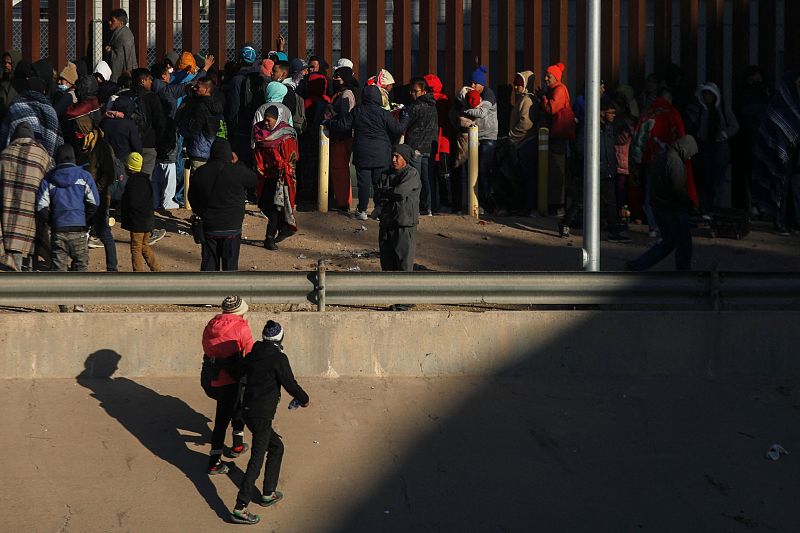
Migrants at the border wall wait to be received by U.S. Border Patrol agents after crossing the Rio Bravo river, known as the Rio Grande in the U.S., from Ciudad Juarez, Chihuahua state in Mexico into El Paso, Texas, U.S., December 21, 2022. /CFP
Migrants at the border wall wait to be received by U.S. Border Patrol agents after crossing the Rio Bravo river, known as the Rio Grande in the U.S., from Ciudad Juarez, Chihuahua state in Mexico into El Paso, Texas, U.S., December 21, 2022. /CFP
The U.S. Supreme Court on Tuesday ordered that an asylum-limiting measure remain in place, blocking thousands of migrants from crossing the border.
The 5-4 decision reversed a lower court decision to end the so-called Title 42 public health order in December. It means the policy will remain in effect until a final ruling.
Title 42, which came into effect in the spring of 2020, allows U.S. border officials to swiftly expel migrants and asylum-seekers in the wake of the COVID-19 pandemic.
On Tuesday, the Supreme Court also scheduled arguments in the case for February, with a final decision expected in the summer.
The White House responded in a statement that the Supreme Court's order "keeps the current Title 42 policy in place while the court reviews the matter in 2023."
"We will, of course, comply with the order and prepare for the court's review," the statement read.
The U.S. Department of Homeland Security also weighed in on the Supreme Court's order on Tuesday, saying that "individuals who attempt to enter the United States unlawfully will continue to be expelled to Mexico or their home country."
The department also said the "decades-old" immigration system is broken and urged Congress to pass comprehensive reform legislation.
U.S. President Joe Biden is scheduled to meet with Mexican President Andres Manuel Lopez Obrador in Mexico City next month.
(With input from Xinhua)